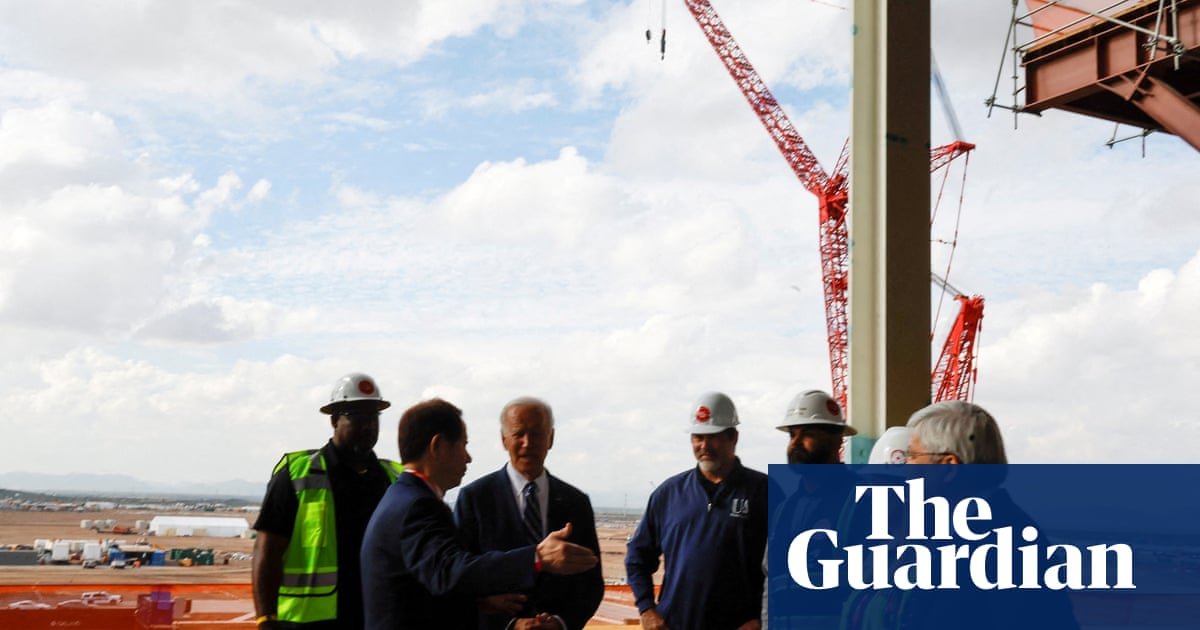‘They would not listen to us’: inside Arizona’s troubled $53bn chip plant::Taiwanese microchip manufacturer TSMC blames struggle to build Phoenix plant on skilled labor shortage but workers cite disorganization and safety concerns
You’d think big hitters in the tech world who need these chips would make this happen. Companies like Apple for example.
I find it hard to believe that the US has an insufficient pool of talent available for this project. These companies just don’t want to pay what those qualified individuals demand in compensation.
Why would you believe this? The talent is specialized and most of them are already employed by the few dominant market players.
I agree with what you said, but why would the US have fewer available qualified individuals than Taiwan? We have a large population and an effective university system. I think its likely that the talent is available, but expensive.
Skilled labor isn’t about having an effective University system.
It’s about having a large number of people with the experience in the sector. A sector the US largely doesn’t have. So the talent pool is very small across the entire country, never mind just Arizona.
Building microchips is really hard and Taiwan has held a practical monopoly on the industry for a while now. It’s not that the US doesn’t have educated workers, but it wouldn’t surprise me that it is hard to find many qualified to build the actual facilities to manufacture microchips - most of the US’s involvement in microchips has been designing them and then handing those designs over to Taiwan for manufacturing.
Taiwan literally had a government intervention to launch TSMCcand developed their university system around TSMC being the crown jewel of employment, while the US has had dysfunctional support for anything STEM that succeeds in spite of itself.
It’s a small unionized labor pool. One that is already being employed to build a new fab by Intel right now. TSMC just doesn’t want to deal with reality.
Lol US has draconian immigration rules and it’s hard to “force train” people to become qualified enough.
This is the best summary I could come up with:
The success of the plant – in a crucial swing state – is likely to get even more scrutiny as Biden prepares for the 2024 election cycle and US tensions with China over technology, and Taiwan, escalate.
Boosting US production will add thousands of jobs as well as securing US supplies at a time of worsening relations with China, whose rapidly growing industry accounts for about 9% of global semiconductor sales.
The worker also criticized frequent evacuations of the job site that occurred mostly due to false alarms and other communication issues that delayed work.
“To ensure this critical phase of tool installation goes smoothly and successfully, it is a very common practice in the semiconductor industry to have a very limited number of experienced specialists from different overseas locations onsite to assist with important steps in the process.
In a 2022 interview, TSMC’s founder, Morris Chang, said the facility struggled to find enough staff and that costs exceeded expectations and told the then House speaker, Nancy Pelosi, during a visit to Taiwan the same year that US efforts to rebuild chip manufacturing domestically were “doomed to fail”.
TSMC is economically vital to Taiwan, which has faced increasing diplomatic and military pressure from China as the company is expanding its global production with historic investments in the US.
The original article contains 1,824 words, the summary contains 218 words. Saved 88%. I’m a bot and I’m open source!
TSMC’s founder, Morris Chang, said the facility struggled to find enough staff and that costs exceeded expectations and told the then House speaker, Nancy Pelosi, during a visit to Taiwan the same year that US efforts to rebuild chip manufacturing domestically were “doomed to fail”.
Well that’s reassuring
I’m not an expert, and definitely talking out of my ass, but maybe the people that have a vested interest in Taiwan not being a part of China may try to dissuade the US from their fabrication efforts to maintain their chip production based relevance on the world stage.




